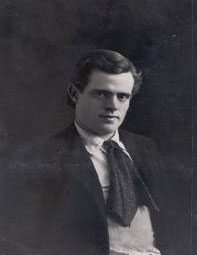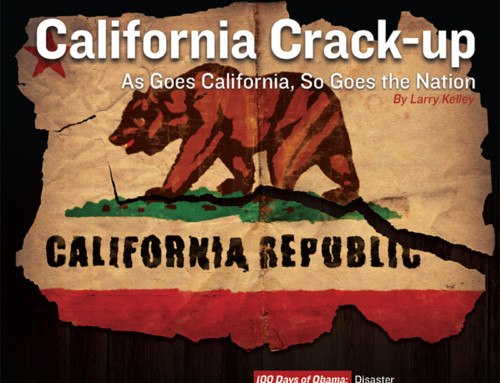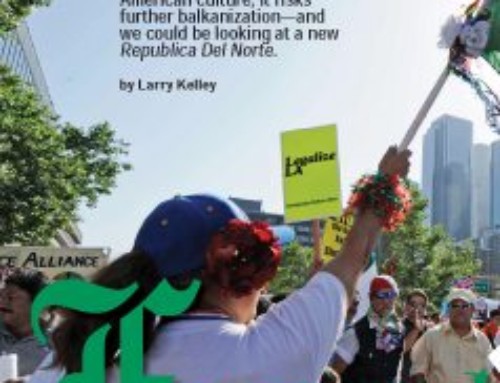By April 1904, 100 years ago this month, Jack London, the illegitimate son of Flora Wellman, had become world-famous and the best-selling American writer west of the Mississippi.
It had been a banner, breakthrough year for the author and “revolutionist.” At a Piedmont hill-top hideaway he called the “Bungalow,” Jack London, a boyish man of 27 years, sat down on his wooden stairwell and admired his handiwork. Above a waving sea of wild poppies, four kites were tied to his front yard’s liquid amber saplings and sailed smartly on a breeze that flowed up the hillsides from the bay several miles below him, making the summer sky a crisp, deep blue. Thirty years earlier, logging companies had finished the job of stripping the hills above Oakland and Berkeley of nearly all indigenous old-growth Redwoods so that Jack could see over the few low-standing groves of oaks and eucalyptus and survey a breathtaking panorama of the bay, the Marin headlands, the mouth of the golden gate, the City of San Francisco, the scores of three-masted schooners and steamships, and downtown Oakland, with its sparkling expansive estuary. His unobstructed view from Piedmont was, he thought, like that of a bird of prey hovering on the updrafts, among his kites.
With world-wide accolades coming in from that year’s publication of The Call of the Wild, and written from his bungalow, the thought dawned on him that he was now not only the country’s most influential socialist but its last, great frontiersman. He knew that the earliest explorers arriving to San Francisco’s environs were astonished by its profusion of wildlife where redwood forests bordering on vast grasslands and savannahs supported flocks of geese, ducks, and seabirds, when aroused, rose into the air in enormous clouds so loud as to imitate the sound of a gathering hurricane; where packs of wolves hunted herds of antlered elk, pronghorn antelopes, and deer, and where whales were often seen beached, drawing herds of huge fat grizzlies streaming down to feast. If he had lived in these same hills a generation earlier, he concluded, he could have hunted, trapped and fished in his own neighborhood and eaten like a king for free.
Having arranged for his wife, Bess, and infant daughters to be away with friends in Glen Ellen, near Sonoma, and having completed his daily ritual of one thousand words, Jack was waiting for Charmian to arrive. Soon enough, cantering her horse toward him, she rode astride her animal which amused him because it so scandalized Piedmont residents like the Craig’s and the Wetmores. As he watched her he judged that she did not posses classic genteel Victorian beauty. But her girlish, almost muscular presence captivated him. She jumped down from her horse and, while he watched her, he reveled that his new celebrity bestowed on him the power to capture her completely and, in the brief moments it took for her to tie her horse’s reins to the fence and walk to him, the milestones leading away from his childhood’s poverty in Oakland’s slums flooded across his mind like a series of photographic images:
- he saw the Hick Mott’s pickle cannery where his mother, Flora, sent him, at age 11, with children as young as 6 to work 12 hours a day like “beasts.”
- he revisited his escape from the capitalist child abusers, buying his first boat, Razzle Dazzle, from French Frank, to become a 16-year-old a neo Robin Hood and oyster pirate captain, his skill and daring earning him, among his water-front youth gang, the title, “Prince.”
- he relived his voyage, at seventeen, hunting seals in the north Pacific where he took the his schooner’s helm in a massive storm and saved his ship and 22 of his barbarous shipmates.
- riding the rails across country as a member of Joseph Coxney’s “Army” of unemployed men and boys, traveling to Washington to demand government assistance, panhandling his way to Niagara, New York and being imprisoned for vagrancy.
- his near-death experience in the vast frozen north, his descent into the slums of East London while writing The People of the Abyss, and the years of desperate struggle trying to break in to the business of selling words.
When Charmian reached him, she said beaming, with a feigned breathlessness, “Jack, did you see the article about you in the paper today?’
He didn’t answer but only smiled back at her, furrowing his brow as they sat down on the staircase together. He began looking intently at a small bruise under her eye. Among Jack’s literary friends, “calling themselves the Crowd,” were artist/luminaries Charles Warren Stoddard, Jim Whittaker, Xavier Martinez, Joaquin Miller, James Hopper, Russian revolutionary, and his secret collaborator in the emancipated love story, The Kempton-Wace Letters, Anna Strunsky, Ambrose Bierce, temptresses including Charmian, as well as numerous uninvited hangers-on who met on Wednesday nights at Jack’s Bungalow, discussed Marxist theory, read excerpts of their works, drank, fenced and boxed. Several even had taken up residence near him in Piedmont on the confluence of country roads, Scenic and Blair Avenues.
To win him, Charmian, his typist, had instinctively become the girlish adventurous companion she knew he craved. She fenced and even boxed with the men. The small purplish bruise caused him to endure an overpowering desire to kiss her cheek, but propriety made him resist. His closest friend, poet laureate, George Sterling, from his home a block away, had brought the article to Jack that morning. By not answering her question, he allowed her the pleasure of showing it to him as if he were seeing it for the first time. Charmain pulled the newspaper clipping from the pocket of her riding trousers, “This is amazing, I’ll let you read it all,” she said spreading it out on her lap so that he could see the headline – Oakland’s Jack London/ Read in White House.
“But listen.” she began, reading aloud, “Elhiu Root, Secretary of War, in a recent interview was asked about how he spends his leisure hours. Secretary Root replied he had recently read Call of the Wild by Jack London and found it so enjoyable that he recommended it to and passed his copy on to President Roosevelt!” Handing him the article, “Perhaps he’ll invite you to dinner, Jack!” she gushed.
“D’you know what Henry James said about Roosevelt after his dinner with him in the White House?” he asked smiling.
“No; what?”
“Old Henry called him a dangerous, ominous jingo,” he said. And they laughed together.
“Well, if we find out that he’s read my book, it’ll prove what I’ve said all along.he just doesn’t have enough to do.” he said as he stood up. “Chan I ask you to type a speech for me?” He said over his shoulder as, he walked with a limp, due to his recent buggy accident, back inside the house.
A month earlier, Jack was voted President of the Intercollegiate Socialist Society, which had immediately begun producing speaking invitations that gave him the chance to break free of the tepid Fabianism of Oakland’s Ruskin Club, where the members there believed that capitalism would gradually give way to some higher governing principle. Now he could indulge in unbridled self promotion and simultaneously become an evangelist for his own continuously evolving philosophy of Darwinist socialism, allowing him to call for violent revolution in front of shocked “silk-stocking” audiences at the country’s ivory tower Universities.
He came out of the house, sat down next to her and handed her a stack of papers with text written in his hand. As she glanced down at the first page of his speech, her gaze landed on the last paragraph where he had pressed down with his pencil to create manually bolded text, such an army of revolution, 7,000,000 strong is a thing to make rulers and ruling classes pause and consider. The cry of this army is “No quarter! We want all you posses. We will be content with nothing less.”
“Jack, what you see and seem so much to want, terrifies me,” she said. In addition to his mythic ability to read and absorb history, philosophy and literature, rivaling even contemporary young intellectual men of action like Churchill and T.E. Lawrence, Jack had begun to believe that his enormous powers of observation could extend to seeing into the future. That morning, as a warm-up to his daily production of one thousand words, he added some notes to an outline for a book that would be titled The Iron Heel, his version of Huxley’s Brave New World, and Orwell’s 1984, his a dark and profoundly prophetic sojourn into the coming murderous international class struggle of the twentieth century. His triumphant Call of the Wild was being heralded by icons such as George Bernard Shaw as not simply a dog’s reversion to the wild but Jack’s unconscious exploration of the warring forces within the human psyche.
“Since they pay me now to write about the human condition, I can’t help wanting to improve it.” he muttered pensively, as he looked intently at a spot of ocean outside the Golden Gate, and as the sun’s descent was starting to bathe the panorama below them in a soft orange light.
[i] And Roosevelt’s reaction to the famed author’s visit was that he thought him to be an “effete and miserable little snob.” [ii] Or until the Clintons’ attempted the nationalization of the entire healthcare industry 90 years later.
NOTE: Publication: Piedmont Post








